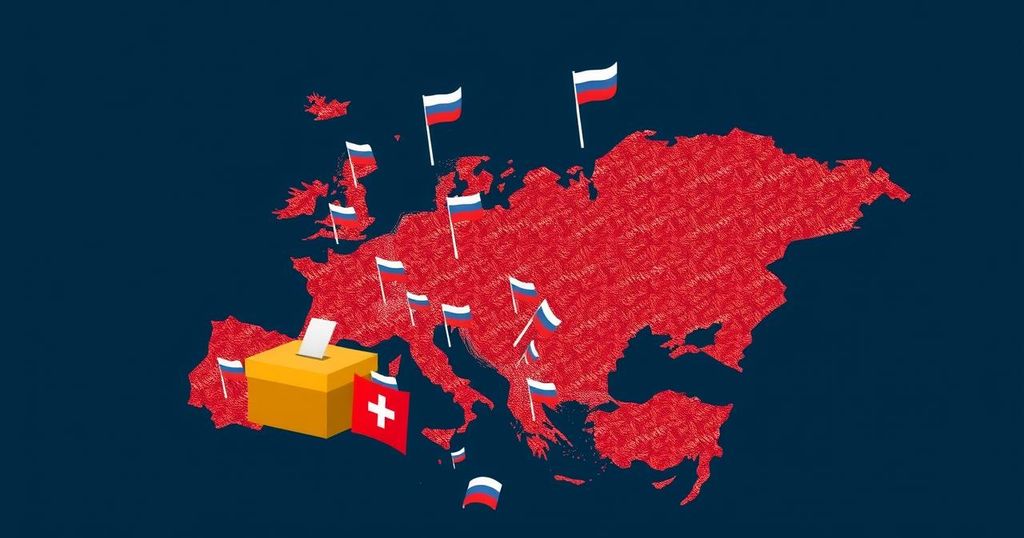Georgia’s Pivotal Parliamentary Election: A Crossroads Between East and West
Georgia’s parliamentary election on Saturday is critically important, as it may shift the country’s long-standing alignment with the West towards closer ties with Russia. The ruling Georgian Dream party claims to maintain peace, while opposition groups argue that it is compromising national sovereignty. Voters face defining choices that will shape the nation’s future in terms of democracy and international relations.
The nation of Georgia is poised for a significant parliamentary election on Saturday, marking what many analysts consider to be a watershed moment since its independence from the Soviet Union in 1991. This election will largely determine whether Georgia maintains its historical inclination toward the West or shifts its allegiance toward closer ties with Russia. The ruling party, Georgian Dream, asserts that its policies will secure peace and stability for the nation, suggesting that it is committed to avoiding armed conflict. In contrast, the opposition liberals contend that the ruling party’s actions are steering Georgia dangerously into the sphere of Russian influence, undermining the nation’s democratic values and Western partnerships. The election occurs at a critical juncture in Georgia’s political landscape, with profound implications for its future. As voters prepare to head to the polls, the stakes are high, not merely for Georgia but for the geopolitical balance in the region. The outcomes could either solidify Georgia’s Western alignment or catalyze a shift towards dependency on Moscow. Overall, the Georgian populace is faced with vital choices regarding their national identity, sovereignty, and foreign policy orientation, with international observers keenly monitoring the developments. As Georgia steps closer to the polls, the interplay between domestic ambitions and foreign influences remains a pivotal theme in this election. The choices made by voters in this election could define Georgia’s trajectory for years to come, profoundly impacting its democratic integrity and international relations.
Georgia, strategically situated at the crossroads of Europe and Asia, has a complex history marked by its Soviet past and a quest for independent identity and sovereignty. Since declaring independence from the Soviet Union in 1991, Georgia has largely pursued a Western-oriented foreign policy. However, the influence of Russia remains significant, especially given the tumultuous history between the two nations, which includes the conflicts in Abkhazia and South Ossetia. The current political scenario reflects a tension between those advocating for continued Western ties and those favoring a rapprochement with Russia. The Georgian Dream party has governed since 2012, promoting a platform of stability, while opposition parties seek to counter perceived creeping Russian influence, highlighting the importance of this upcoming election.
The forthcoming parliamentary election in Georgia represents a crucial juncture that will influence the nation’s alignment in the international arena. As the ruling party emphasizes peace and stability associated with closer ties to Russia, the opposition raises alarms about the ramifications of such a shift. The decision of Georgian voters will not only dictate the nation’s immediate political framework but might also shape its long-term trajectory. This election is, therefore, emblematic of Georgia’s ongoing struggle to navigate its identity and alliances in a rapidly changing world.
Original Source: www.washingtonpost.com




Post Comment